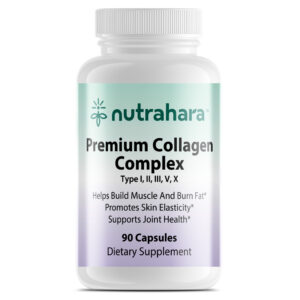
Nutrahara Blog
Nutrahara Blog
Top Vitamins for Bones and Joints Every Woman Needs After 30
1. Vitamins for Bones and Joints: The Essential Guide for Women’s Strength and Longevity
Our bones and joints are the unsung heroes of our bodies—silently supporting us through every movement, every step, and every act of love and service. Yet, as women, we often overlook their care until discomfort or stiffness reminds us of their importance. From your 30s onward, natural changes in hormone levels—especially estrogen—begin to affect bone density and joint elasticity. By the time menopause approaches, many women experience accelerated bone loss and inflammation in the joints, leading to conditions like osteopenia, osteoporosis, and joint pain.
The key to prevention and renewal lies in nourishing your body with the right vitamins for bones and joints. These nutrients work together to strengthen your skeletal system, enhance flexibility, and protect cartilage from wear and tear. Vitamins like D, K2, C, and B Complex, along with minerals such as calcium and magnesium, play a critical role in maintaining bone mass and promoting collagen formation within the joints.
What’s most empowering is that women can take proactive steps at any age. By combining balanced nutrition, daily movement, and targeted supplementation, it’s possible not just to preserve—but to restore—bone strength and joint health. This guide will walk you through the most effective vitamins for bones and joints, their natural food sources, and practical strategies to keep you moving gracefully and confidently through every stage of womanhood.
2. Why Women Need Vitamins for Bones and Joints
Our bones and joints are living tissues that constantly renew themselves, but as women, our biology presents unique challenges that can weaken this renewal process over time. From hormonal fluctuations to lifestyle pressures, understanding why we need specific vitamins for bones and joints is the first step toward lifelong strength and mobility.
2.1 The Hormonal Connection and Bone Density
Estrogen isn’t just a reproductive hormone—it’s a vital player in maintaining bone density and regulating calcium absorption. As estrogen levels begin to decline during perimenopause and menopause, the balance between bone breakdown and bone formation shifts, leading to gradual bone loss. This is why women over 40 are more prone to conditions like osteopenia and osteoporosis. Supplementing with the right vitamins for bones and joints, especially Vitamin D, Vitamin K2, and calcium, helps slow this process and supports the rebuilding of bone tissue.
Vitamin D enhances calcium absorption, while Vitamin K2 ensures that calcium is deposited into bones rather than accumulating in arteries or soft tissues. Together, these nutrients protect bone density and joint integrity as we age.
2.2 The Modern Lifestyle Challenge
Today’s fast-paced lifestyle can also silently undermine bone and joint health. Many women spend long hours at desks, get limited sunlight, and consume processed foods that are low in essential nutrients. Excessive caffeine, alcohol, and stress further deplete magnesium and calcium—two key minerals for bone formation and joint flexibility.
Adding the right vitamins for bones and joints into your daily routine acts as a powerful form of protection against these modern stressors. With mindful nutrition, moderate exercise, and targeted supplementation, women can maintain strong bones, supple joints, and the freedom to move with ease and confidence through every stage of life.
3. The Top Vitamins for Bones and Joints Every Woman Should Know
Your bones and joints rely on a delicate balance of nutrients to stay strong, flexible, and pain-free. While a balanced diet lays the foundation, specific vitamins for bones and joints are essential to prevent age-related decline and keep your body moving gracefully through the decades. Let’s explore the most important ones every woman should include in her daily wellness plan.
3.1 Vitamin D: The Sunshine Nutrient
Often called the “sunshine vitamin,” Vitamin D is one of the most crucial vitamins for bones and joints because it regulates how your body absorbs calcium—the mineral that gives bones their strength. Without sufficient Vitamin D, even a calcium-rich diet can’t effectively fortify your bones. Unfortunately, many women today have low Vitamin D levels due to limited sun exposure or indoor lifestyles. Supplementation with a high-quality Vitamin D3, like Nutrahara’s Vitamin D3 Blend, helps ensure optimal absorption and bone density.
3.2 Vitamin K2: The Calcium Director
Vitamin K2 works hand-in-hand with Vitamin D by guiding calcium to where it belongs—your bones and teeth—and preventing it from settling in arteries or joints. This makes it one of the most vital vitamins for bones and joints, particularly for women in their 40s and beyond. Natural sources include fermented foods like natto and sauerkraut, but supplementation is often necessary for consistent intake.
3.3 Vitamin C: The Collagen Builder
Collagen is the protein that keeps joints flexible and cartilage strong. Vitamin C stimulates collagen production, making it a key nutrient among vitamins for bones and joints. It also acts as a potent antioxidant, protecting bones from oxidative stress that accelerates aging. Fresh fruits like oranges, strawberries, and kiwi are great sources, but pairing Vitamin C with collagen supplements—like Nutrahara’s Premium Collagen Complex—enhances results.
3.4 Vitamin B Complex: The Energy and Repair Catalyst
B vitamins—especially B6, B9 (folate), and B12—support red blood cell formation, reduce inflammation, and promote cellular repair. They’re particularly important for women balancing busy lives and physical activity. A complete Vitamin B Complex supports not just energy and mood, but also tissue recovery and joint resilience—making it an essential part of your daily vitamins for bones and joints routine.
4. The Supporting Nutrients That Make Vitamins for Bones and Joints Work Better
While vitamins for bones and joints play a crucial role in maintaining strength and flexibility, they don’t work alone. Your body needs a supportive network of minerals and nutrients that help activate, absorb, and balance these vitamins for optimal performance. Think of them as the “team players” that make your bone and joint wellness strategy truly effective.
4.1 Calcium: The Building Block of Bone Health
Calcium forms the backbone—literally—of your skeletal system. It strengthens bones and supports the structure of teeth and muscles. However, calcium is most effective when paired with the right vitamins for bones and joints, such as Vitamin D and Vitamin K2. Without these, calcium can’t be properly absorbed or directed into your bones. Dairy products, tofu, dark leafy greens, and sesame seeds are excellent natural sources, but many women still require supplementation to meet daily needs.
4.2 Magnesium: The Mineral Multitasker
Magnesium is a quiet powerhouse in the world of vitamins for bones and joints. It activates Vitamin D, helps maintain bone density, and relaxes muscles to prevent cramps or stiffness. Unfortunately, stress, caffeine, and processed foods easily deplete magnesium levels. Including magnesium-rich foods—like almonds, spinach, and legumes—or using a supplement like Nutrahara’s DetoxifyLife, can help restore balance and enhance bone and joint resilience.
4.3 Collagen and Protein: The Framework of Flexibility
Collagen acts as the glue that holds your joints, tendons, and ligaments together. As collagen production naturally declines with age, joints become more vulnerable to stiffness and wear. Combining protein-rich foods with collagen supplements like Nutrahara’s Premium Collagen Complex, which contains Vitamin C for better absorption, supports elasticity and comfort in daily movement.
4.4 Omega-3 Fatty Acids: The Inflammation Soother
Omega-3s are essential fats that reduce inflammation and keep joints well-lubricated. When combined with vitamins for bones and joints, Omega-3s enhance flexibility and may reduce symptoms of arthritis or joint discomfort. Sources include salmon, chia seeds, and flaxseeds—or high-quality fish oil supplements for women who need added support.
Together, these supporting nutrients amplify the benefits of your vitamins for bones and joints, helping you build a body that feels as strong and vibrant as your spirit.
5. The Best Natural Sources of Vitamins for Bones and Joints
While supplements provide a convenient and reliable way to meet your daily nutrient needs, the foundation of good health always begins with food. Whole, nutrient-dense foods provide not only the essential vitamins for bones and joints, but also the cofactors—enzymes, antioxidants, and phytonutrients—that help your body use those vitamins efficiently. By combining wholesome meals with targeted supplementation, you can create a sustainable, nourishing routine that keeps your bones strong and your joints flexible for years to come.
5.1 Foods That Strengthen from Within
When building your diet around vitamins for bones and joints, focus on variety and color.
Here are some of the best natural food sources to include daily:
- Leafy Greens: Kale, spinach, collards, and broccoli are rich in calcium, magnesium, and Vitamin K—essential for bone mineralization and joint function.
- Fatty Fish: Salmon, sardines, and mackerel provide Vitamin D and Omega-3 fatty acids, both critical for reducing inflammation and improving joint lubrication.
- Citrus Fruits and Berries: Oranges, strawberries, and blueberries deliver Vitamin C, a key nutrient for collagen formation and tissue repair.
- Nuts and Seeds: Almonds, sunflower seeds, and chia seeds are loaded with magnesium and Vitamin E, which help protect joint tissues from oxidative stress.
- Fermented Foods: Sauerkraut, kefir, and natto naturally contain Vitamin K2, an essential companion to Vitamin D for directing calcium into the bones where it belongs.
These whole foods work synergistically to deliver the full spectrum of vitamins for bones and joints, ensuring your body receives balanced, bioavailable nutrition.
5.2 Whole-Food Supplements for Busy Women
For many women, juggling work, family, and personal wellness can make it challenging to get every nutrient through food alone. That’s where high-quality supplements come in. Nutrahara’s targeted formulas—such as FemmePower for hormonal and bone support, Premium Collagen Complex for flexibility, and Vitamin B Complex for energy and tissue repair—bridge the nutritional gaps that modern lifestyles create.
By blending nourishing foods with science-backed supplements, you give your body everything it needs to thrive. This powerful combination of whole nutrition and vitamins for bones and joints ensures that your foundation of strength remains solid at every age.
6. 7 Expert Tips to Maximize the Benefits of Vitamins for Bones and Joints
Knowing which nutrients to take is only half the journey—how you use them daily determines their true impact. Here are seven expert tips to help you get the most out of your vitamins for bones and joints:
- Pair Nutrients for Synergy: Combine Vitamin D with K2 and calcium for effective bone absorption, and pair Vitamin C with collagen for stronger joint support.
- Stay Consistent: Take your supplements at the same time every day to allow vitamins for bones and joints to build up steadily in your system.
- Add Weight-Bearing Exercise: Walking, yoga, or strength training enhances the benefits of your bone-supporting vitamins.
- Limit Caffeine and Soda: Excess caffeine and phosphates can reduce calcium absorption, weakening bone health.
- Hydrate Regularly: Adequate water helps maintain joint lubrication and flexibility.
- Manage Stress: High cortisol levels deplete minerals. Support calm with mindfulness or Nutrahara’s AnxioGuard supplement.
- Track Your Levels: Regularly test your Vitamin D, magnesium, and calcium levels to personalize your routine.
Small, consistent actions like these transform your vitamins for bones and joints from a habit into a lifelong wellness investment.
7. Real Women Share Their Stories About Vitamins for Bones and Joints
The power of vitamins for bones and joints isn’t just backed by science—it’s proven through the real experiences of women who’ve regained strength, comfort, and confidence in their bodies. Here’s what a few women from across the U.S. had to share about their wellness journeys.
Jessica, 38, Austin, TX
“After my second pregnancy, my knees and lower back were constantly aching. My doctor suggested adding more vitamins for bones and joints to my routine, so I tried Nutrahara’s Premium Collagen Complex with Vitamin D3 and K2. Within eight weeks, I noticed a real difference—I can run and play with my kids again without pain.”
Michelle, 52, San Diego, CA
“Menopause hit me hard with joint stiffness and fatigue. I started taking FemmePower and Vitamin B Complex, and the results were incredible. My flexibility improved, and I feel more energetic than I have in years. These vitamins for bones and joints have truly helped me reclaim my mobility.”
Rebecca, 44, Denver, CO
“Teaching fitness classes daily took a toll on my joints. I started supplementing with Premium Collagen Complex and DetoxifyLife, and the improvement was remarkable. My joints feel stronger and less inflamed, and recovery time is faster. I tell all my clients that vitamins for bones and joints are a must for active women.”
Karen, 58, Chicago, IL
“After a bone density scan showed early osteopenia, I made vitamins for bones and joints part of my daily regimen. A year later, my follow-up scan showed real progress. It’s empowering to know we can strengthen our bodies naturally at any age.”
8. Summary: Vitamins for Bones and Joints – A Woman’s Guide to Strength and Vitality
Women’s bone and joint health is deeply influenced by hormonal changes, lifestyle habits, and nutrition. As estrogen levels decline during the 30s, 40s, and 50s, bone density and joint elasticity naturally decrease, making the right vitamins for bones and joints essential for lifelong strength, flexibility, and balance.
Key nutrients like Vitamin D, K2, C, and B Complex form the foundation for bone regeneration, calcium absorption, and collagen formation, while minerals such as calcium and magnesium further support structural integrity and muscle function. Collagen and Omega-3 fatty acids play equally vital roles—promoting joint lubrication and reducing inflammation. Together, these nutrients help maintain mobility, reduce pain, and prevent age-related bone loss.
A nutrient-rich diet that includes leafy greens, fatty fish, citrus fruits, nuts, and fermented foods naturally provides these vitamins for bones and joints. However, many women benefit from targeted supplementation through Nutrahara’s FemmePower, Premium Collagen Complex, Vitamin B Complex, and DetoxifyLife for optimal support.
Beyond nutrition, consistent exercise, hydration, and stress management are key to maximizing the benefits of vitamins for bones and joints. Real-life testimonials from women across the U.S. highlight the transformative impact of these nutrients—improved mobility, reduced pain, and renewed energy.
Ultimately, caring for your bones and joints isn’t just about preventing weakness—it’s about empowering yourself to move confidently, age gracefully, and live fully at every stage of womanhood.
Disclaimer: This article is not a substitute for medical advice. Please consult a healthcare professional before starting any supplement, especially if pregnant, nursing, taking medication, or managing health conditions.
Written by the Nutrahara Team
This article was developed by the Nutrahara team of nutrition scientists and naturopaths, who specialize in formulating safe, effective, and science-backed supplements for women’s health. Every ingredient we use is carefully selected to support your body’s unique needs—naturally. Follow us on LinkedIn for expert insights and updates on our latest wellness solutions.









